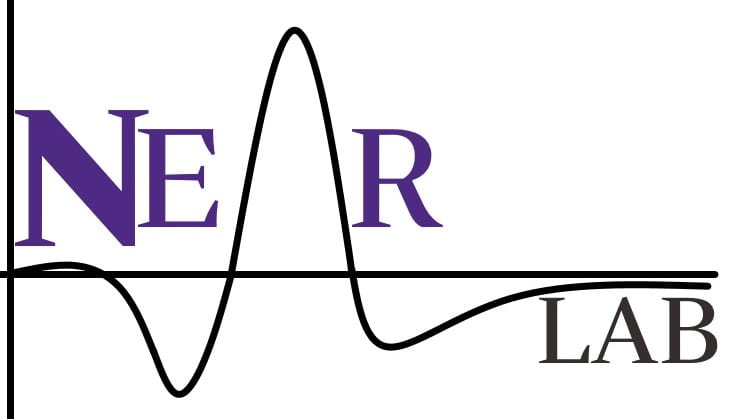Research Projects

An Examination of Vocal Motor Features in Current and Remitted MDD
Major depressive disorder (MDD) is a serious public health problem with modest treatment response, which may, in part, be due to its heterogeneous clinical presentation. One way to improve these clinical outcomes is to investigate the role of particular features of MDD that are tied to specific pathogenic mechanisms – work that would help identify novel and focal treatment targets. Psychomotor disturbance (e.g., agitation [PmA] and retardation [PmR]) is a particularly significant feature of MDD as it relates to more severe depression and worse treatment response. However, traditional assessment approaches of psychomotor disturbance (e.g., self- and observer-reports) are limited as they (a) miss less overt, but relevant abnormalities, and (b) are susceptible to bias. A more promising approach is using motoric features of the voice extracted from standardized speech tasks. These vocal motor features are promising indicators of psychomotor disturbances in MDD as they are objective, non-intrusive, mediated by neural circuits involved in coordinated motor control, computed automatically, and easily assessed in the “real-world” (and thus able to be used in real-time mobile assessments and treatments). This study has the potential to identify novel, easily assessed, cheap, and scalable treatment markers of psychomotor disturbance – work that will ultimately improve the monitoring and treatment of a devastating and prevalent psychiatric condition.
We are actively recruiting for our study of motor features of the voice as indicators of psychomotor functioning and depression. If you are between the ages of 18 and 45, are right-handed, and have an iPhone or Android, you may be eligible. Study participants can earn up to $925. Please complete this online screening survey or contact us directly at VocalMotorStudy@northwestern.edu, and a member of our team will contact you.
Emotional Processing in Friendships Study
Interpersonal dysfunction is a major contributor to the immense personal and societal cost of depression, undermining patients’ capacity for employment, independent living, and maintaining meaningful relationships. The goal of this project is to identify the biobehavioral mechanisms of co-rumination (an established marker of interpersonal dysfunction in depression characterized by excessively discussing personal problems and dwelling on negative affect), by testing the role of (a) linguistic and neural synchrony between dyadic partners using simultaneous dual-subject EEG recordings and (b) mobile sensing of naturalistic communication on the smartphone. This innovative, multi-method project will identify precise linguistic patterns and brain circuits linked to depression risk at the dyadic level, which can be targeted in future interventions to improve functional outcomes.
Do you or your friend struggle with self-confidence? Help us research how close friends talk and support each other! If you AND one of your close friends are between 18 and 40 years and willing to participate together, you may be eligible. You and your friend can each earn up to $125. Please complete this online screening survey or contact us directly at Emotion-Friends@northwestern.edu (email) or 312-884-9797 (call/text) for more information.

An Examination of Psychomotor Disturbance in Current and Remitted MDD
Major depressive disorder (MDD) is a serious public health problem that has, at best, modest treatment response.One way to parse the heterogeneity is to investigate the role of particular features of MDD, an endeavor that can also help identify novel and focal targets for treatment and prevention efforts. Psychomotor disturbance (e.g., psychomotor agitation [PmA] and retardation [PmR]) has long been viewed as a particularly pernicious feature of MDD, and yet we know surprisingly little about these behaviors. Our study will take a Research Domain Criteria (RDoC) approach by comparing the three groups on multiple indicators of PmR and PmA to better understand slowing and agitated movements that are characteristic of depression, and determine if these movements occur only in active depression, or are also present in individuals whose depression has remitted. We will also evaluate the brain basis for such behaviors, and examine if these abnormalities in movement change over time as currently depressed individuals recover, or as remitted individuals relapse. Taken together, understanding these movement abnormalities may lead to path-breaking early detection strategies, that help to predict the course of depression, and inform treatment strategies.
Recruitment for this study ended 07/10/2024.

Social Processes and Phone Use in Adolescent Depression
Major depressive disorder (MDD) is a leading cause of disability worldwide and has a peak onset during adolescence. While interventions are moderately effective for many adolescents, 40 to 70% will relapse within 5 years. MDD relapse predicts academic difficulties, risky behaviors, and even suicide. It is critical that we identify mechanisms of MDD relapse in young people, so that we may develop targeted interventions for this vulnerable group.
Social processes and dynamics (especially with peers) are particularly significant in adolescence, though it is currently unclear which social processes are most critical to MDD relapse. The goal of our study is to utilize multiple innovative methods from neuroscience to mobile technology to identify which social process(es) contribute to recurrent depression – an approach that will inform novel methods of treatment and prevention for adolescents.
Recruitment for this study ended 10/01/2024.

680 N. Lakeshore Drive, Suite 1520, Chicago, IL 60640 • 312-503-9078 • NEARLab@northwestern.edu
